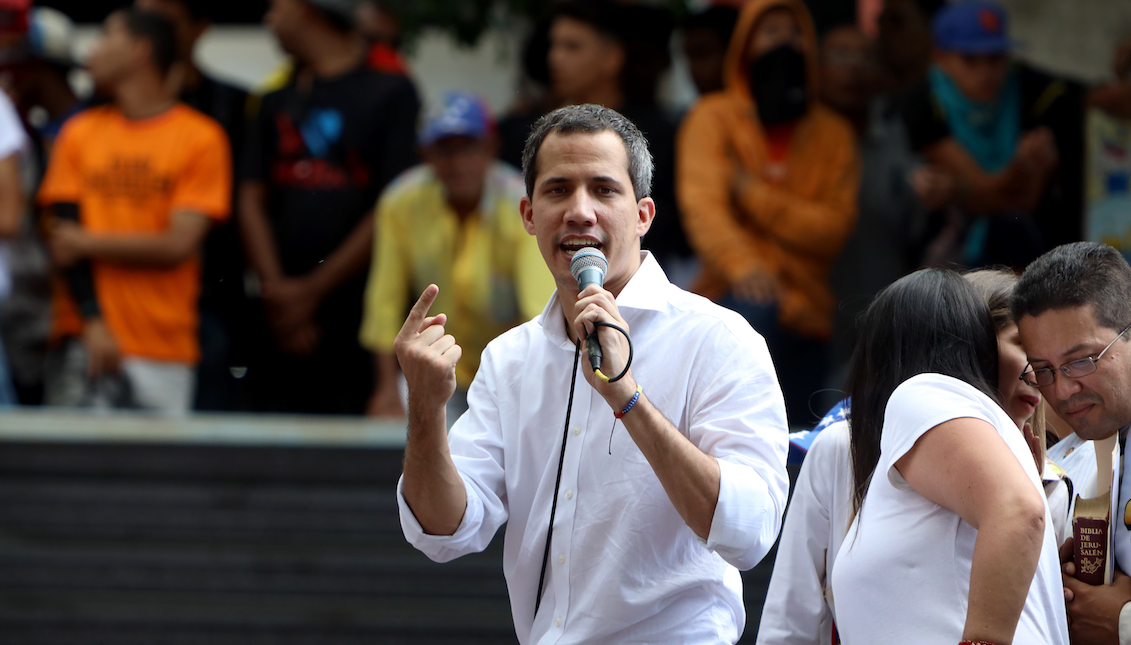
The last bastion of democracy in Venezuela falls after a parliamentary coup by the Nicolas Maduro regime
Between Chavista legislators and a National Guard cordon, the government of Nicolás Maduro prevented transparent elections from being held in the National…
Since the Venezuelan opposition took over the majority of seats in the National Assembly in 2015, the country has had one last symbol of democracy.
But when people suffer the worst political and humanitarian crisis in the history of the continent, it is very difficult to keep track of political maneuvers.
A National Guard cordon prevented the arrival of National Assembly President Juan Guaidó to the chamber to vote for his re-election on Jan. 5, tearing down the last bastion of democracy in the Caribbean country.
While Guaidó was trying to jump over the fences to arrive and defend his position and name as the country's interim president, Chavista legislators and some opponents proclaimed a new president, the opponent and recent critic of Guaidó's campaign, Luis Parra.
At just 36, Guaidó became a symbol of hope for millions of Venezuelans last year when, after crippling the country with street protests, he was sworn in as interim president by the regime's opposition after the election fraud of 2018.
The young parliamentarian was immediately recognized as Venezuela's representative by most European and Latin American countries, and especially by the United States, which also proceeded to freeze the regime's assets and impose sanctions on Chavista officials.
But despite international support, the Venezuelan opposition has been able to achieve little in the search for a democratic solution to the crisis in the country.
Maduro remains in power thanks, in part, to having instituted a Constituent Assembly that undermines the effort of the official Assembly, and to the support of strategic allies, such as Cuba and Russia.
Amidst the violence and poverty of a country that seems to have lost hope, the symbolism of Juan Guaidó began to expire.
RELATED CONTENT
Finally, and according to the Washington Post, two briefcases full of cash were enough for members of the opposition itself to change sides and displace the last sign of democracy in the country.
Among them was Luis Parra, a politician who has been accused of accepting bribes from the government, and who surprisingly enough announced his candidacy against Guaidó via Twitter, just hours before being sworn in by a closed-door Assembly, and whose official president remained outside as he was being prevented from entering.
The solution for Guaidó and his followers was to go to the headquarters of the newspaper El Nacional and hold an improvised session with the legislators who had been left outside the chamber, according to the newspaper El País.
Lamento el bochornoso show de la dictadura para intentar impedir lo inevitable: que a pesar de perseguir y encarcelar, no han doblegado el espíritu de lucha de los diputados y el de toda Venezuela.
— Juan Guaidó (@jguaido) January 6, 2020
El martes iremos a sesionar en el Palacio Federal Legislativo como corresponde. pic.twitter.com/RtquQ9rOYX
But at this point, and with a game of mirrors where presidents and assemblies are duplicated, the only thing certain is that corruption is stronger than any opposition in Venezuela.











LEAVE A COMMENT: